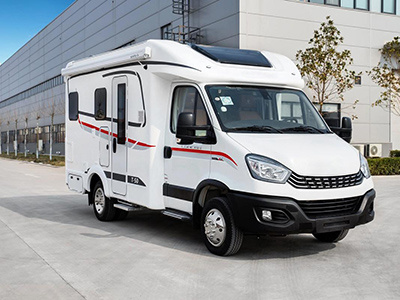
PMI Foam: The RV Structure Material Disrupter—An Advantage Analysis Against Wood and Traditional Foams
In the manufacturing of Recreational Vehicles (RVs) and Motorhomes, material selection directly determines the vehicle's performance, lifespan, and user experience. For a long time, the industry has relied on wood (such as plywood, lumber) and traditional plastic foams (like EPS and XPS) as core materials for body sandwich panels. However, the inherent flaws of these materials—heavy, vulnerable to water, and lacking durability—have severely limited the advancement of modern RVs.
The emergence of the high-performance engineering material—PMI Foam (Polymethacrylimide foam)—is fundamentally changing this landscape. Thanks to its unique chemical structure and superior physical properties, PMI foam, as the core material for RV composite sandwich panels, demonstrates overwhelming advantages over traditional materials in every dimension.
Core Advantage 1: The Dual Revolution of Lightweighting and Stiffness
|
Material Type |
Density (kg/m3) (Typical Range) |
Specific Strength (MPa⋅m3/kg) |
Impact on RV Application |
|
PMI Foam |
35−110 |
High (Excellent) |
40−60% weight reduction, improved fuel efficiency and payload. |
|
Traditional Wood |
400−700 |
Low |
Heavy structure, increases fuel consumption, limits payload. |
|
EPS/XPS |
20−45 |
Very Low |
Lacks structural stiffness, prone to fatigue and bending deformation. |
Advantage Analysis: RV manufacturers using PMI foam can easily achieve a 40% to 60% structural weight reduction. This is because PMI foam possesses exceptionally high specific strength (the ratio of strength to density). Under the premise of meeting the same requirements for structural stiffness and bending strength, PMI foam sandwich panels weigh significantly less than those made with wood or traditional foam. This directly results in higher fuel efficiency and greater payload capacity for the RV, which is key to enhancing the user's travel freedom.
Core Advantage 2: The Triumph of Durability and Moisture Resistance
Moisture resistance and durability are the "lifelines" of an RV's structural longevity.
- Wood (Plywood): Is the most absorbent material. Once moisture penetrates, it leads to rot, mold, and causes the sandwich panel to delaminate. This is the main culprit for RV structural aging.
- Traditional Foams (EPS/XPS): Although not water-absorbent, their mechanical properties degrade rapidly under high temperatures or long-term loads, causing the core to separate from the skin, leading to voids and delamination.
- PMI Foam: Features a 100% closed-cell structure, meaning it is completely non-absorbent, non-corrosive, and mold-resistant. PMI's excellent thermal stability ensures that the adhesive interface of the sandwich panel does not fail due to core expansion in hot weather. This fundamentally eliminates the risk of RV structural damage due to moisture, guaranteeing decades of structural integrity.
Core Advantage 3: Insulation Performance and Living Comfort
The low thermal conductivity(λ) of PMI foam is superior to that of structural wood and most aluminum alloys.
|
Material Type |
Thermal Conductivity (λ) (W/m⋅K) |
Application Impact |
|
PMI Foam |
Very Low, providing highly efficient thermal resistance |
Reduces AC/heater energy consumption, maintains consistent indoor temperature, enhances living comfort. |
|
Traditional Foams |
Low, but unstable long-term performance |
Prone to aging, reducing insulation effectiveness, and low strength requires thicker walls. |
|
Aluminum/Wood |
High, forming Thermal Bridges |
Highly susceptible to condensation and energy loss. |
Advantage Analysis: PMI foam offers a superior and more durable insulation effect, meaning the RV can maintain indoor temperatures more economically. More critically, PMI foam avoids the thermal bridging effect caused by aluminum frames, which not only saves energy but also prevents the formation of condensation on interior walls, further protecting the RV's interior from moisture damage.
Conclusion: PMI Foam—The Future Standard for RVs
The application of PMI foam in the RV sector represents a significant empowerment of traditional manufacturing by materials science. It addresses the four major pain points in RV construction: weight, strength, durability, and insulation. For modern RVs seeking high performance, low operating costs, and an extremely long service life, PMI foam is no longer just an option; it is rapidly becoming the manufacturing standard for high-quality RV structures.

PMI foam
Latest News




